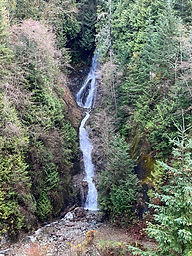Anti-Racism: Addressing a Rising Problem
- kc dyer
- Mar 20, 2023
- 3 min read
Updated: Mar 24, 2023
Awareness and Action Both Important

Acts of overt racism in Canada skyrocketed during the pandemic. A study of police-reported hate crimes released in October, 2022 noted that "hate motivated crime rose sharply in 2020, reaching the highest number recorded since comparable data have been available." During the first year of the pandemic, BC had the highest rate of hate crimes in the country, with a tremendous spike in anti-Asian incidents, according to the study.
In 2021, Bloomberg called Vancouver "the anti-Asian hate crime capital of North America." That same year, a study released by the University of British Columbia reported that more half of students between the ages of 12 and 17 have witnessed other kids being bullied, insulted or excluded because of their race or ethnicity at school. According to the study, children who come from a visible minority are three times as likely as white children to report these incidents of personal abuse.
But experts say criminal acts of violence and school bullying are not the only way racism can manifest itself. Last week's post in The Watershed introduced the idea that racism can exist everywhere, even in the most well-meaning of communities. Awareness of the nuances of racism is as important as action.
Micro-Aggressions and Racial Gaslighting
The Watershed has spoken with several village residents and other locals willing to share their stories. One person recalled how their first job on the North Shore was with a co-worker who regularly used a racial slur 'as a joke' until they were reprimanded.
Thankfully, few of these stories reflected such overt acts of discrimination. This does not, however, mean that racism is absent. Micro-aggressions are commonplace verbal and behavioural acts that, whether conscious or otherwise, communicate hostile, derogatory, or negative attitudes toward people of colour.
One 11-year old student related a story that took place in her classroom. "My teacher said: 'You're from India, right? Do you speak Indian?' She didn't know there are hundreds of languages in India."
This sort of situation is tough for kids, especially when accompanied by Racial Gaslighting - that is, dismissing racialized people's complaints as figments of their imagination or asking them to question their own lived experiences with racism.
Embarrassment or a simple lack of education may lead well-meaning people to look the other way when micro-aggressions or gaslighting happen in a racialized context, which can actually make things worse.
Anti-Racism Action Plan in BC Schools
As a district, West Vancouver has been taking steps in recent years to improve relations with the Squamish Nation and to further Indigenous Education in schools. The Watershed is going to explore this initiative more closely in our 'Settler Ed 101' series.
On the heels of the UBC study, the province stepped forward in January with an anti-racism action plan for schools. The plan aims to "create change in B.C. schools by raising awareness and creating resources to improve the school experience for racialized students, staff and families". To that end, the Ministry of Education and Child Care promises to provide staff training in fostering an anti-racist environment in schools, along with new incident-response guidelines.
Racism is frequently present in many organizational structures, in policies and in people's behaviour, and it takes a tremendous effort to dismantle these systems and beliefs, even here in Lions Bay. Ultimately the goal of this series is to open the discussion, to provide resources and to both suggest where we need to do more, and highlight the efforts of villagers who are working in the fight against racism.
The Watershed values your thoughts! If you would like to add to the discussion, post your comments below, or email editor@lionsbaywatershed.ca


Comments